5 Tips for Starting Pilates and Trusting the Process
Starting out with Pilates: How to trust the process (and why you should)
We’re living in a “now” focused world. We can get groceries delivered in an hour and almost anything we want on our doorstep within a day or two. Google “five minute abs” and you’ll see dozens of workouts promising instant success. Starting out with Pilates is a process. I can cut to the chase and say without doubt that the process is absolutely worth it. You’ll get as strong as you want to do all the things you love in life. But you have to accept the invitation to trust the process to get there.
For people who are new to Pilates or other mind-body systems such as GYROTONIC® exercise or yoga, it can be difficult to understand the impact and expectations around the movements. What are you supposed to feel? Too many times I’ve heard people give up too soon saying things like “I’m not sure I feel anything”, “this seems too easy”, or “I’m not sweating enough”. I sometimes wish I could impart a few key pieces of knowledge to them by osmosis to ease them through the bumps of those first few (sometimes confusing) sessions.
What is Pilates?
Simply stated, Pilates is a series of exercises that can be done on a mat or specialized equipment. But it’s really so much more. Pilates is also a complete system of movement that can be applied to other fitness programs to make them more effective. This unique, whole body system was developed by forward-thinking visionary Joseph Pilates 100 years ago. It evolved throughout his lifetime and continues to do so today.
The goal of a Pilates session is to move through the repertoire of exercises at the level and pace that suits you. We’ll move your spine in all planes of motion and challenging your body with different relationships to gravity. The original Pilates exercises focused simply on the body and breathwork. Over time, various props and specialized equipment became integrated into the movement system.
Getting started with Pilates
As you prepare to begin a Pilates practice, it’s important to start at the beginning to build the vocabulary and understand the concepts. Serious athletes may be able to jump into an advanced class and be able to do the movements, but without taking time to master the Pilates basics, their benefits will be limited by a lack of understanding and foundation. No one would try to build a skyscraper without a solid foundation.
As you feel the movement principles of Pilates in your own body you will start to connect to the organization of the exercises. This is when the magic starts to happen. As ability, strength, and coordination increase, we can add complexity and more challenges. You will see your strength, balance, and mobility improve with consistent practice and without the “no pain no gain” mentality that typically comes with fitness training. The best part is that everything you love to do will get easier, including regular, daily life.
Trusting the process in Pilates
So how do you get there? Understanding some common truths can lead to a much smoother experience of learning the movements, breathing, expectations, and coordination to maximize the impact of this work. After more than twenty years of teaching Pilates here a few things I know to be true for people at any age or stage when meeting this work:
1. Everyone gets it.
Yep, if you show up consistently you will learn to connect the breath, movement, and coordination to execute the exercises. Happens every time. In Pilates we use breathing to connect to muscular activation of tissues and breathing optimally brings tone to the deep support structures of the trunk. Most importantly, it brings awareness into the body and is a tool to help you start to become more aware of your body as it moves.
People feel unsure and worry that they are inhaling and exhaling at all the wrong times. Or, clients might come in for a session and think why are we spending so much time *just* breathing? Your trainer can help with a plan just for you and there’s a reason behind everything you’re doing. I promise that everyone can learn to move and breathe at the same time.
2. It’s not your typical workout.
Pilates is a system of mindful movement. It requires the act of listening to your body to help you organize the movement organically. Joseph Pilates said “It is the mind itself which shapes the body.” He didn’t mean that you bench pressed a ton of weight, but that you build the awareness you need to move the body with ease, strength and control. That control comes not from a performative execution of exercises, but from noticing what is happening in your unique body. Understanding the body in relationship to its various parts is what allows for successful coordination of complex movements.
In a small fitness studio like MOVE Wellness, your trainer will ask questions about how and what you feel while executing movements. The idea is to listen, notice, and connect — both trainer and client — based on what the trainer sees and on the client’s goals. While we teach specific movement practices like Pilates, GYROTONIC® exercise, barre and yoga at our studio, the goal is to use those forms to empower people of any age and fitness level to be strong, healthy and capable of moving in ways that make them happy — walking, running, gardening, crafting, dancing, morel mushroom foraging, or whatever it may be.
3. It’s not one size fits all.
When you show up for a Pilates session, we’re going to meet your body where it’s at. It can be tempting to come in looking for a quick fix. And easy to be impatient for the twinge in your back or the ache in your knees to resolve immediately. But all of this work will be done within the level that’s right for your body, and your age and stage of life. I often say that we are working at the pace of the client’s body, not their mind. In our quick results oriented culture, the deep efficiency of our work is moving in relationship with your body, not against it.
Your body is unique, with issues and alignment specific to you. Pilates trainers certified by the NPCP have done rigorous training that means they can help support a variety of pathologies or postural issues. It can be tough after just one session to feel totally different in your body. At first it might feel too easy while you adjust to a different type of sensation. It will quickly become a full body workout once the coordination and capacity for listening and feeling the movement in our body occurs. Change takes time. Part of the work is committing to regular movement so that you actually give yourself the chance to see noticeable change. Through the practice of Pilates, you will increase understanding of your own body and how to care for it through movement.
4. It can be a vulnerable process.
We know that people come to us with so many layers of our culture’s imprint in their psyche about their body. It is a privilege to be with our clients and help them have an enjoyable experience moving. Pilates offers something for everyone and for every body. We will optimize your body for what you love to do in life and bring ease and balance to support that. It’s about more than being defined by just musculature — it’s thinking about fitness as resilience.
This is so different from the messages we get daily in our culture. We are told that doing all those crunches for core strength will flatten your belly or help your back pain. But what if your back pain is due to something happening with your feet or neck? What if doing all those crunches to get an abdominal six pack pulls your pelvic floor so taut that you start to have incontinence? Pilates is a whole body system of movement. We’ll focus on individual postural issues that help each person unravel their own unique muscular imbalances to create healthy movement patterns.
Nothing gives us more pleasure than when a client jumps up and says that the time flew by and they feel great!
5. There are no shortcuts.
You have to go through the forest. That’s something I like to say to my clients and instructor trainees. What I mean is that Pilates is a process of organizing movement and embodying the principles of human movement. There’s not a straight, paved path from your starting point to your end goal. Think of the body as a system. We will target the whole system to move optimally, not just one muscle. It can take a lot of time and patience to make progress.
It takes intentional movement to build strength and understand your own body. Along this journey, you will challenge yourself with more complex movements and layer in resistance from the Pilates equipment or your own body weight. You will learn to identify and overcome your own personal tendencies and compensations to optimize your movements. The goal is to build up to a full body workout that uses pace, weight and complexity to effectively meet the needs of your unique body.
Start your own Pilates journey
This is a process, and I encourage clients to trust it. It will not be the pace of the mind but it will be the pace of your unique body. Building the deep strength and organization to support your goals is an act of listening and building awareness of the needs of your body moment by moment. Trusting the process means showing up, committing to the work, and having confidence in the journey.
Pilates can be an ideal fitness program for a wide range of people at a variety of ages and stages. Get started with the movement essentials from the comfort of your home. Or, schedule an introductory session with one of our professional trainers.
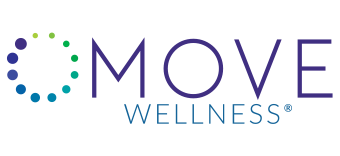
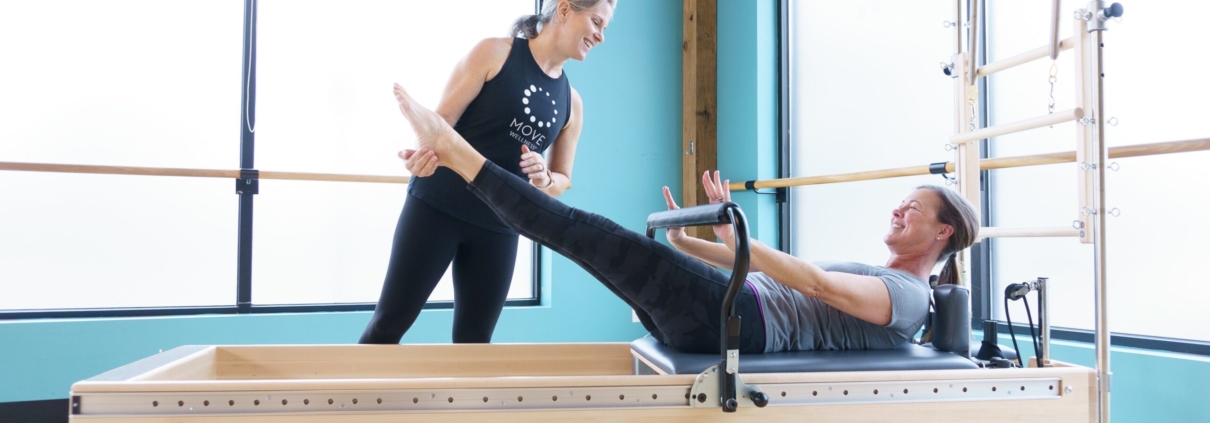
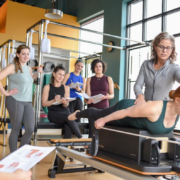
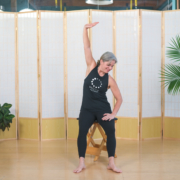
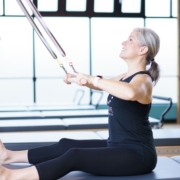
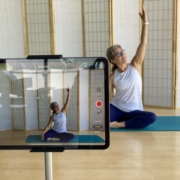
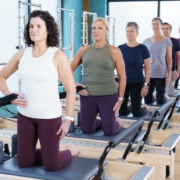
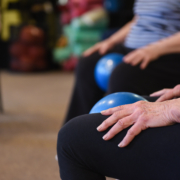


Leave a Reply
Want to join the discussion?Feel free to contribute!